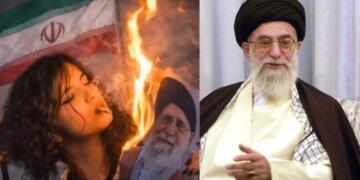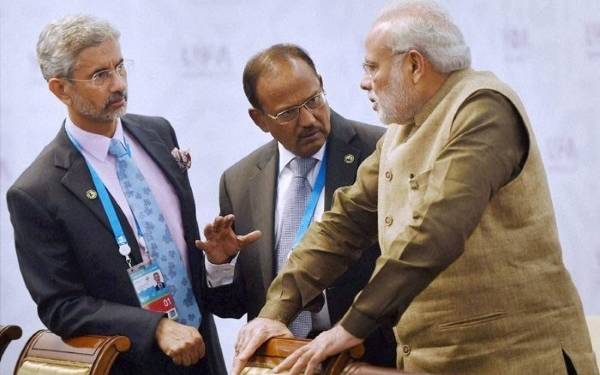Subrahmanyam Jaishankar, a formidable diplomat and India’s current External Affairs Minister is a man of chosen, yet hard-hitting words to say the least. Jaishankar is the first former Foreign Secretary to be serving as the Foreign Minister of India and as such has an ocean of international relations knowledge at the back of his head. The strong foundations which Sushma Swaraj laid for India’s Foreign Policy for the first five years of the Modi government are now being strengthened by S Jaishankar.
At the annual Ramnath Goenka Lecture conducted by the Indian Express Group, Jaishankar minced no words to draw a contrast between the lethargic foreign policy with which India carried itself for 70 long years, and the new and dynamic policies in the same regard.
India has long suffered at the hands of the Congress party’s idealistic and soft foreign policy. The lack of ability to manoeuvre our foreign policy with changing times, only to be perceived as a consistent and non-aligned nation has hurt us in ways we cannot comprehend. A similar sentiment was shared by Jaishankar who delivered a powerful lecture on the topic: “Beyond the Delhi Dogma: Indian Foreign Policy in a Changing World”.
“The purposeful pursuit of national interest in shifting global dynamics may not be easy; but it must be done. And the real obstacle to the rise of India is not anymore the barriers of the world, but the dogmas of Delhi.” This one statement summarizes best what Jaishankar wished to convey to the audience. It is essential to understand that the Modi government has, in all given circumstances, held national interest over and above all other factors. It is also a reminder that with the very fluid global dynamics at play, one cannot hold steadfastly to a rigid and ideal foreign policy laid down and envisioned by supposed ‘great leaders’ of the past. Foreign policy is an area where one cannot help but go with the times. Another interesting aspect which Jaishankar cast light upon was the ‘dogmas’ prevailing in Delhi with respect to India’s image among the world community. It is a known fact that even after seventy years of independence, an influential coterie in Delhi has not been able to give up on Nehru’s view of how India’s foreign policy should be. They hold his ideals in the highest regard, mostly to the detriment of India in the modern times. Take for example India’s Non-Aligned policy. It took a Narendra Modi for us to get out of the bubble which was created just after independence, and hindered India’s growth in many ways.
“Reading the global tea leaves right and then leveraging the international situation could have gone better… Taking risks is inherent to the realisation of ambitions. A nation that has the aspiration to become a leading power someday cannot continue with unsettled borders, an unintegrated region and under-exploited opportunities. Above all, it cannot be dogmatic in approaching a visibly changing global order.” he further said. This only goes to prove how the Modi government is not afraid of taking risks in a volatile global situation. Jaishankar also took a dig at the Congress dispensation, attributing the J&K problem and the unsettled borders with China to the ruinous foreign policy the previous Congress dispensations had. He also said that the Simla Agreement of 1972 could have been an opportunity to understand the mind-set of the Pakistani state and resolve border disputes, however it was a missed opportunity yet again. This is true. Which other country in the history of world geopolitics has won a war, destroyed and broken an enemy nation into two, and yet not grasped the opportunity to resolve the problem for once and for all? “The early misreading of Pakistan’s intentions can perhaps be explained away by lack of experience. But the reluctance to attach overriding priority to securing borders even a decade later is much more difficult to justify…”, he added. Jaishankar also described China as a ‘battle-hardened neighbour to the north’.
S Jaishankar also admirably admitted to having a fluid and inconsistent approach to foreign policy, for India’s own benefit. For example how India now has amiable relation with both Israel and Palestine, Iran and Saudi Arabia, or the formation of various contradictory blocs, and being a member of all such blocs. For example, RIC (Russia-India-China) with JAI (Japan-America-India)? Or the Quad with the SCO (Shanghai Cooperation Organization). As such, Jaishankar indirectly admitted to India being in the good books of all nations involved in conflict with other nations.
India’s inability in the past to take decisive action against Pakistan for terror perpetrated on our soil is nothing but a testimony of a fractured foreign policy, fearful of all sorts of international repercussions. Even after 26/11, when the Air Force was ready to pound Pakistan, the then government held back. It is also worthy to be mentioned that the establishment per se also consists of the bureaucracy, a large section of which still bears true faith to Nehruvian idealism. Status-quoists of the highest order, these bureaucrats have been at the forefront of preventing a drastic change in the foreign policy of India, as they think such a change would adversely impact India’s image among the world community. However, the Modi government has time and again proved such individuals wrong, and shown how decisive action by India on any front will not necessarily invite international wrath. India has positioned itself as a strong, yet peace-loving nation, which when triggered, can go to any extent to protect its interests. Basically, it is fundamental diplomacy at play here, and S Jaishankar is now heralding us into our foreign policy utopia.




























